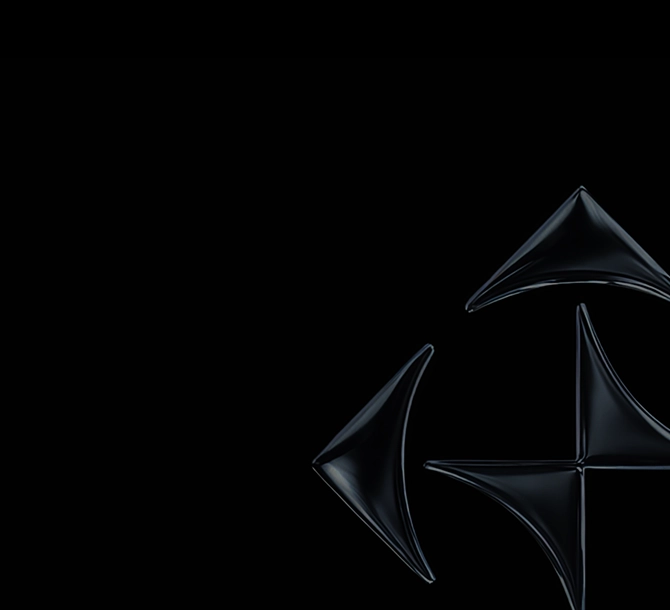Have you discovered counterfeit versions of your products flooding the market? Online accounts impersonating your brand and misleading your customers? Or your IP being used in ways you never authorized?
You're in the right place.
In this guide, we'll cover:
- What brand protection is and why it’s important
- The risks your brand and IP may face
- What a modern brand protection strategy looks
- What a true brand protection solution looks like
For further information you can sign up for our webinar series here to get more detailed insights and trends for the following topics (we will always send the full recording out after the event).
What is Brand Protection?
Brand protection is the practice of ensuring your company's intellectual property (IP) and brand identity are safe from any kind of unauthorized use.
More specifically, the definition of brand protection encompasses a series of actions designed to secure your brand’s distinctive elements—logos, product names, packaging, and more—against infringement, counterfeiting, and misrepresentation, primarily in digital spaces.
Key objectives include securing revenue from being appropriated by counterfeiters and impersonators, upholding the company’s reputation, and ensuring that customers receive the genuine experience they expect from the brand.
In an age where information spreads instantly and imitators have a huge financial incentive to rip off your company’s assets, protecting your brand has never been more critical. Implementing effective brand protection strategies not only preserves your competitive edge but also builds trust and loyalty with your customers.
Why Is Brand Protection Important?
Brand protection is not just a legal necessity—it's a strategic business imperative that underscores the importance of brand name protection in a crowded marketplace. As competitors vie for consumer attention, safeguarding your brand’s identity ensures customers can confidently recognize and choose your offerings over counterfeit alternatives.
Here's why brand protection matters:
- Protect Revenue: Counterfeiters and unauthorized sellers can divert sales, directly impacting your bottom line. Brand protection helps safeguard your revenue streams by preventing such losses.
- Support Business Growth: A protected brand provides a solid foundation for expansion into new markets and product lines. Investors and partners are more likely to engage with businesses that have secured their IP.
- Maintain Brand Value: Protecting your IP prevents dilution of your brand, ensuring it remains unique and valuable. A strong brand differentiates you from competitors and adds significant value to your business.
- Build Customer Trust: Ensuring that customers receive genuine products enhances satisfaction and loyalty. Counterfeit or substandard products can harm your reputation and erode trust.
- Ensuring You Keep Your Intellectual Property: Infringements can weaken your legal rights over time. If you don't enforce your IP rights, it may become more challenging to assert them in the future, potentially leading to loss of exclusivity.
- Avoid Legal Issues: Proactively protecting your brand reduces the risk of costly legal disputes over IP infringements. It also strengthens your position if litigation becomes necessary.
- Customer Service Challenges: Handling complaints about counterfeit products increases the workload of your customer service team. Your team will have to address complaints about products you didn't produce, diverting attention from actions that might actually grow your business or improve customer relations.
Integrating brand protection into your business strategy safeguards your assets and supports sustainable business growth far into the future. Producing and using a brand protection guide for your own company, and then continually refining your approach, you create a resilient framework where your brand can thrive, attract loyal customers and foster long-term success.
A Quick Overview of Intellectual Property
Before looking at how to protect your business’s IP, it's essential to understand what we’re talking about here. Let’s have a quick look at the very basics of the IP your business may have:
Trademarks protect the name of your business, as well as its products and services. Logos, slogans, phrases, even colors, sounds, and other elements can all potentially be protected by trademark.
They exist to distinguish your goods or services and inform consumers of who is behind the products they see. Marks are essential for establishing a brand identity and ensuring that customers can identify your products or services in the market. In short, if there’s an element that helps to identify something as yours, a trademark is there to help.
Copyright is designed to protect original creative works from being stolen or appropriated without the creator’s permission. Copyright protection helps preserve the uniqueness of your creative content, preventing others from copying or distributing it without permission.
Most commonly, copyright benefits creatives and ensures their work is legally theirs. Books, music, artwork, photography, architectural designs, computer software, and many more creations can be protected by copyright.
Patents are aimed at protecting inventions—be they the creations of individuals or businesses. Most patents filed are either utility patents, which protect new inventions, or design patents, which focus on new ornamental designs.
There are other types of IP available to businesses to help protect their innovation from infringers, so be sure to research your options carefully.
A Step-by-step Guide to Brand Protection
Protecting your brand involves a proactive and continuous process. It requires vigilance, strategic planning, and the right tools to be effective. Here's how you can implement it effectively:
Step 1: Register Your Intellectual Property
You can't protect what you haven't legally secured. Registering your IP is the foundational step in brand protection.
- Establish Legal Ownership: Registration provides official recognition of your rights, making it easier to enforce them against infringers.
- Global Considerations: If you operate internationally, consider using systems like the Madrid Protocol for trademarks, which allows you to register in multiple countries with a single application.
- Understand IP Laws: Be aware of differences such as first-to-file versus first-to-use jurisdictions.
- Ensure Comprehensive Coverage: Ensure all aspects of your brand—names, logos, slogans, and other distinctive elements—are appropriately registered in relevant categories and jurisdictions.
By securing your IP, you lay the groundwork for effective enforcement and protection against counterfeiters, impersonators, and others infringing your IP. Though, you should keep in mind that IP is not a “set and forget” strategy—you need to keep maintaining it, checking for potential clashes under review, and identify new opportunities to grow your company through IP.
Step 2: Monitor Online Spaces
Continuous vigilance is crucial in the digital age, where infringements can occur rapidly.
- E-commerce Platforms: Regularly check online marketplaces like Amazon, eBay, and Alibaba for counterfeit or unauthorized listings of your products.
- Social Media: Monitor platforms for fake accounts, misuse of your brand, or misleading promotions that could harm your reputation.
- Web Domains: Keep an eye on domain registrations to identify domain abuse such as cybersquatting or typosquatting that could confuse customers or divert traffic.
- Search Engines: Use tools to track how your brand appears in search results, including paid ads that may infringe on your trademarks.
- Automated Monitoring Tools: Leverage brand protection tools and technology that scan the internet continuously, alerting you to potential infringements in real-time.
Monitoring allows you to detect issues early and respond promptly to minimize damage.
Step 3: Take Action Against Infringements
When unauthorized use is detected, decisive action is necessary. Assertively enforcing your IP rights deters infringers and protects your brand's integrity. Begin by utilizing the mechanisms available to you:
- Platform Collaboration: Most online platforms have procedures for reporting counterfeit or infringing content (for example, please refer to past guides such as TikTok Shop, Temu, Taobao, Amazon, and Amazon APEX for reference). This is a critical step, as some platforms are more cooperative than others. Establishing relationships with key contacts can facilitate quicker resolutions. Use these reporting mechanisms to request the removal of unauthorized listings, fake accounts, or infringing content. Be aware that responsiveness may vary, so persistence is key.
- Legal Action: If platform efforts fail or infringement is severe, explore legal avenues. Cease and desist letters, injunctions, or lawsuits may deter violators and potentially win compensation.
- Offline Actions: Counterfeiting isn’t limited to the internet. Working with law enforcement, you can build legal cases against counterfeiters operating in physical locations. This may involve coordinating raids on warehouses and manufacturing facilities, effectively dismantling counterfeit operations at their source.
- Record Keeping: Document all infringements and responses. This data supports legal cases, reveals trends, and informs strategic improvements in your brand protection efforts.
Step 4: Educate and Empower Stakeholders
Your employees and customers both play essential roles in sustaining brand integrity, so it’s vital to include them in your brand protection strategy.
- Internal Stakeholders:
Train your team to recognize brand vulnerabilities and follow established brand guidelines. Regularly update them on policies and procedures for logo usage, trademark compliance, and authorized product distribution. By fostering a culture of brand stewardship, you ensure every employee contributes to protecting your brand. - Your Customers:
Customers can be powerful allies in defending your brand. Inform them about the risks posed by counterfeit products and how to identify genuine items by sharing details on packaging elements, verification methods, and authorized sales channels, and then encourage them to report suspicious products or sellers.
Risks Your Brand May Face
Understanding potential threats is essential to defend your brand effectively. Here are some common risks:
Counterfeiting
Unauthorized replication and sale of your products can lead to significant revenue loss and damage your brand's reputation. Counterfeit goods are often of inferior quality, which can result in customer dissatisfaction and harm your brand's image.
Marketplaces
Online platforms are convenient venues for counterfeiters and unauthorized sellers. The vast number of listings and sellers makes it challenging to monitor and control unauthorized use of your brand. Infringing products on marketplaces can divert sales and mislead customers.
Social Media Impersonation
Fake social media accounts pretending to be your brand can mislead customers, spread false information, and damage trust. These impersonators may engage in scams or inappropriate communication that reflects poorly on your brand.
Impersonating Websites
Lookalike websites designed to mimic your official site can deceive customers or steal their information. These sites can be used for phishing attacks or selling counterfeit products, eroding customer confidence and harming your reputation.
Domain Abuse
Unauthorized use or registration of domain names similar to yours can confuse customers and divert traffic. This includes practices like cybersquatting and typosquatting, where individuals register domain names with bad-faith intent to profit from your trademark. Domain abuse can lead to loss of web traffic and potentially expose customers to fraud.
Phishing Scams
Fraudulent communications that appear to come from your brand aim to trick customers into revealing sensitive information. Phishing scams can lead to financial loss for customers and damage your brand's credibility.
Copyright Infringement
Unauthorized use of your original content—such as images, text, or videos—affects your brand's uniqueness and may mislead customers. It can also diminish the perceived value of your intellectual property.
By recognizing these risks, you can take targeted actions to mitigate them and protect your brand's integrity.
A True Brand Protection Solution
Counterfeit goods is a $2 trillion global problem that grows more complex every day. With counterfeiters rapidly adapting their tactics, emerging in new channels, and hiding behind private communications, traditional solutions struggle to keep pace.
It’s become clear that brand protection requires more than just the standard toolkit.
At MarqVision, we are committed to our mission: "To protect and build a future shaped by original ideas, innovations, and creativity." We seek to arm brands with advanced AI-native technology that continuously adapts to the needs of businesses against the challenges their brand and IP face.
Why MarqVision Is Different
We built Marq AI from the ground up to respond to the modern challenges brands are facing—not just surface-level issues. Our technology is engineered to find and address the most well-hidden infringements, streamline enforcement actions with generative AI, and give customers truly actionable insights in real time.
- Advanced AI Monitoring: Our proprietary Marq AI technology scans online marketplaces, social media, and websites in real-time to detect infringements with unmatched accuracy.
- Automated Enforcement: We streamline the process of taking down unauthorized listings and content by using generative AI to produce replicable documents, saving a huge amount of time for legal and brand protection teams.
- Global Coverage: With monitoring capabilities across major platforms worldwide, we ensure your brand is protected in all markets where you operate—especially in Asia, where the vast majority of IP infringements come from.
- Intelligent Dashboard: Access real-time reporting and analytics to stay informed about protection efforts, with AI-provided insights that allow customers to focus primarily on the biggest and most threatening infringers.
- Expert Support: Our team of IP specialists collaborates with you to develop tailored strategies and provide guidance on complex issues. We understand the nuances of brand protection better than anyone, and we are committed to supporting you through your unique challenges.
By partnering with MarqVision, you can focus on handling real business development and growing your business worldwide, while we handle the complexities of brand protection.
Stay up to date on the latest IP Protection content from MarqVision.
4 Enforcements a Week to 400: Scale Brand Safety with Marq AI

Don’t Just Find Counterfeits. Dismantle the Entire Network.

.png)
Discover the latest trends and challenges in IP protection

Take Control of Your Trademarks with MARQ Folio

Renew and Manage Your Trademarks Easily With MARQ Folio

We’re waiting to hear from you

See the best brand protection solution in action

Don’t let piracy steal your growth

Talk to us about your brand protection problems
















